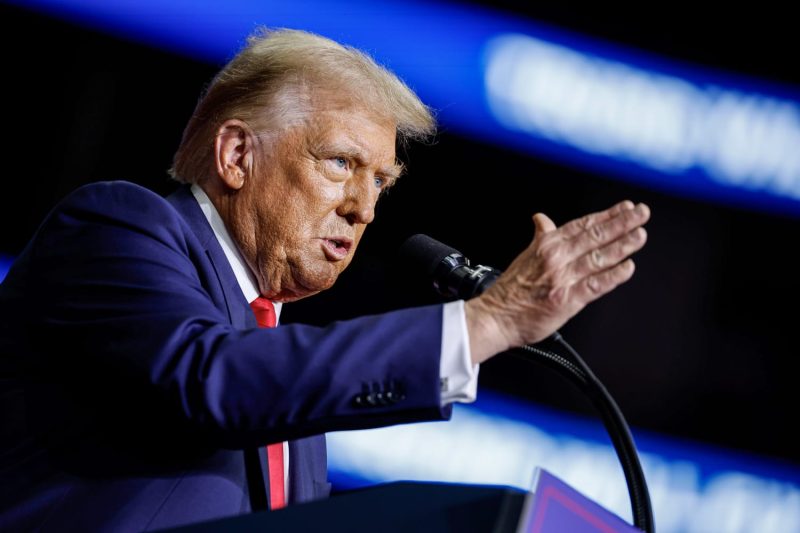Economy
14-11-2024 12:13
19 Views
U.S. Companies Hustle for Lobbyists and Loopholes Amidst Trump’s Tariff Tumult!

Title: "Impact of Trump’s Tariff Threats on U.S Companies: A Rush for Lobbyists and Loopholes"
The unconventional strategies of former U.S President, Donald Trump, particularly his trade policy has been a major source of discomfort for many U.S firms. His tariff threats throughout his tenure continue to make waves long after his exit from the Oval Office, causing U.S companies to scramble for the services of lobbyists and explore potential legislative loopholes.
In recent years, we have witnessed the undertaking of several preventative measures by U.S companies to avoid potential financial setbacks associated with such tariffs. Many of these companies are securing the services of highly skilled lobbyists. These professionals, equipped with governmental rapport, persuasive skills, and extensive legal knowledge, represent the interests of the firms in political and bureaucratic circles aiming to sway the decision-making process regarding these tariffs.
The tariff threats implemented by Trump aimed to 'level the playing field' by constructing a protective barrier around the U.S economy. While the primary targets were countries like China and Mexico, the secondary impact was an unprecedented burden on U.S companies that largely rely on imports for raw materials and goods.
For instance, the automotive industry, heavily dependent on imported steel and aluminum, felt a significant pinch from these tariffs. Similarly, retail giants and technology firms, reliant on outsourced materials, also experienced considerable strain. The tariffs triggered increased operating costs for these companies, unfavorably tipping their economic scales.
In response to this surreal commercial climate, U.S companies have been strategically positioning themselves to exploit potential legal loopholes. Attempting to navigate through the maze of complex legislative language, companies are hoping to circumvent the tough trade policy, thereby safeguarding their financial health. Legal professionals are working around the clock to identify these possibilities and minimize the impact on the profitability and viability of their client's businesses.
Despite these struggles, some interpret Trump's tariff threats as a necessary catalyst for change, prompting U.S. firms to explore domestic sources for goods and raw materials. By fostering self-reliance, companies may be able to significantly cut down import costs in the long run and boost the home economy.
Overall, while tariffs are conceived to serve as a shield to protect the domestic market, they can inadvertently harm domestic firms that rely on imports. In response to this, there is undoubtedly a marked increase in the engagement of lobbyists and daring attempts to find legislative loopholes. The future will carry valuable insights into how these measures meet their full potential and if they successfully mitigate the impact of such controversial trade policies.
In conclusion, it is indisputable that Trump's tariff threats have sparked a variety of reactions, responses and strategies from U.S based companies. Going forward, it remains to be seen how these strategies will shape the trade environment and the operations of these companies in a post-Trump era.

